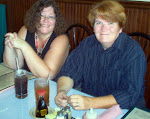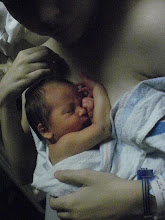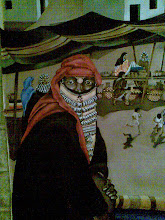
Happy New Year everybody!
Time is an odd sort of thing. It is a man made cons truct that we perceive to have imposed upon ourselves, and yet there really is something there to be measured. Ancient measurements of time were invariably based on the movements of the moon or the sun, and the shift of the seasons. The earliest calendars were lunar; due to the variations of the moon's cycle the calendar did not stay in sync with the seasons and would "process" in advance of the actual seasons. Adding a 13 month helped a little, but it was not the most accurate measure. Solar calendars were more accurate, but also tended to gain time and "advance" in relationto the flow of the seasons. This would mean that when the suns rays from the Winter Solstice shown through the center of Stonehenge, faithfully every year, the lunar calendar would become increasingly at
truct that we perceive to have imposed upon ourselves, and yet there really is something there to be measured. Ancient measurements of time were invariably based on the movements of the moon or the sun, and the shift of the seasons. The earliest calendars were lunar; due to the variations of the moon's cycle the calendar did not stay in sync with the seasons and would "process" in advance of the actual seasons. Adding a 13 month helped a little, but it was not the most accurate measure. Solar calendars were more accurate, but also tended to gain time and "advance" in relationto the flow of the seasons. This would mean that when the suns rays from the Winter Solstice shown through the center of Stonehenge, faithfully every year, the lunar calendar would become increasingly at




 truct that we perceive to have imposed upon ourselves, and yet there really is something there to be measured. Ancient measurements of time were invariably based on the movements of the moon or the sun, and the shift of the seasons. The earliest calendars were lunar; due to the variations of the moon's cycle the calendar did not stay in sync with the seasons and would "process" in advance of the actual seasons. Adding a 13 month helped a little, but it was not the most accurate measure. Solar calendars were more accurate, but also tended to gain time and "advance" in relationto the flow of the seasons. This would mean that when the suns rays from the Winter Solstice shown through the center of Stonehenge, faithfully every year, the lunar calendar would become increasingly at
truct that we perceive to have imposed upon ourselves, and yet there really is something there to be measured. Ancient measurements of time were invariably based on the movements of the moon or the sun, and the shift of the seasons. The earliest calendars were lunar; due to the variations of the moon's cycle the calendar did not stay in sync with the seasons and would "process" in advance of the actual seasons. Adding a 13 month helped a little, but it was not the most accurate measure. Solar calendars were more accurate, but also tended to gain time and "advance" in relationto the flow of the seasons. This would mean that when the suns rays from the Winter Solstice shown through the center of Stonehenge, faithfully every year, the lunar calendar would become increasingly atodds with it.

Other mechanisms for telling time evolved, notably sundials, water clocks and candle clocks were all used with varying degrees of success. None of them were precise, and all had to be adjusted or maintained. The word clock itself traces a twisted path of etymology back through Dutch,to old Northern French - cloque or Bell (tolling bells at intervals was another way to mark time) to Latin and from thence to the Celtic Gaul clocca.
We have arrived today in the Western World at a system of time based on the second, which is grouped into 60 seconds per minute, 60 minutes per hour, 24 hours in a day, varying days (ahem) in a month, and 12 months in a year. The average person may think this is an arbitrary man made device artificially imposed on the surface of the seasons which are our most notable visual indicators of the shifting of time. The minute, hour, days of 24 hours, months and years are not "accurate" in that they vary and thus we have leap years, once again to keep "time" in the right measure with the seasons. However the second IS a "scientific"

accurate measurement - the second is the duration of 9,192,631,770 periods of the radiation corresponding to the transition between the two hyperfine levels of the ground state of the caesium 133 atom. If your eyes have just crossed, I am right
with you! It is interesting to me that this does not represent the triumph of science over primitive inaccurate methods of measurements...it simply means that we now have the means to measure something very, very small that is very, very stable and use that as a mechanism for marking time. The moon was the same back then as it was easiest observable thing to use as our measure in the early eras of our history. We are still measuring time based on observable natural phenomena. We also have it down to the smallest measurable unit which is labeled an "altosecond" which is a 1/10 to the 18th of a second. Hanging out at the other end, the largest unit of time based in seconds is the exasecond which is 10 to the 18 power times 1 second or rather roughly 32 billion years.

And then, God help us all, there's Einstein, the Father of modern physics and his great equation, E = mc2 . When he synchronized time on the unit of the constant finite speed of light, as the maximum signal velocity, this means that two individuals in motion relative to each other will observe different elapsed times for the same event. Time suddenly became a very strange thing. (never mind that a gravity well will literally slow time.) This has become beloved of the science fiction writers, or perhaps hated. In theory, a ship traveling through space near the constant speed of light will reach a destination many light years away in what they perceive to be a matter of months. Meanwhile, back on earth decades may pass, meaning that the relatives they leave behind and the world that they know are all dead and changed past recognition, even they are only

a few months older. Is it any wonder so many writers have "invented" faster than light drives and technology that are not affected by time paradox, from the antimatter drive of the Enterprise to the Star Wars hyper space to the Warshawski Sail and impeller drive technology of David Weber's Honor Harrington series, there by negating Father Albert's great equation? There is a continuity in keeping everyone the same age and in the same time frame for story telling purposes. It also indicates maybe how much the idea of time and aging and connection affects us. Of all the Science Fiction writers who have taken us to the stars, Ursula LeGuin maybe the one writer who has met Einstein's time paradox head on in her loosely connected Ecumen series, where space travel does separate and severe families and worlds forever in the relativity of passing time. (and I highly recommend both authors to my readers, Weber and LeGuin. They are very different and they are both excellent!)
Of course, none of this speaks to our perceptions of time. Different cultures have different views of time expressed in their mythos. For instance the JudeoChristian view of time is linear - time had a beginning and will, accordingly have an ending. Other cultures have a cyclical view - a wheel of time that repeats endlessly - this is found in the Hindu, Jain, Mayan, Babylonian, Mayan and many "pagan" mythos. I live in the 21st century in modern America - our calendar year ends on December 31st and the new year begins on January 1st. As a descendant of Celtic ancestors, their ancient new year was Samhain, the last harvest fest of the year, and they counted forward from there their new year. Emotionally, for me, the Winter Solstice is the logical spot for the turn of the calendar...the sun begins to return, and the days begin to lengthen, incrementally.
When we are very young, time seems to go slowly; when we grow older, it seems to speed up. One day to an eleven year old person would be approximately 1/4,000 of their life, while one day to a 55 year old individual would be approximately 1/20,000 of their life. Based on that, a day appears much longer to a child than to an adult, even though the measure of time has not changed.
And so we arrive at New Years Eve. New Years Day, actually. The clock rolled over as I wrote this and we will now arbitrarily date our checks and documents and letters 2011. A lovely conceit, that this day is any different from the day that went before. We are driven, for whatever reasons, by time as a lash whipping us onward. Maybe it is that whether time is or is not finite, we feel that we are, with the universality of death - the great unknowable transition before us. Should we live the so called Biblical three score and ten, that is 70 years, we would then live 25,550 days. Days! 70 years sounds like a long time...twenty five thousand, five hundred and fifty days sounds way too short! It gets your attention! So, having gotten your attention, what is my point?
What will you do with the 365 calendar days just now given to you?
Live. LIVE!
Treasure the breath you breathe, the light that you see, the touch of the earth, the sound of the world around you, the love - above all else - the love that you share and treasure with those close to you. Don't sleep walk through it. Don't push away days and times because they are hard or you hurt. Thats a part of your life too, fleeting and precious days. Whether the coming year is "good" or "bad", it is ours to have, experience to the fullest and then let go in the great wheels passing. We should not miss a minute of it...
There are 525,600 minutes ahead of you...
Measure your life in love!















































Have a great year with your Lady Grace, Cameron! And thanks -- now I know why they call it the "atomic clock"!
ReplyDeleteMindfulness, as I tell my clients, is beginning with simplicity. Instead of driving to work on autopilot, it means paying attention to the license plate in front of you, the flowers blooming at the side of the road, and feel of the breeze on your face. It's listening to a child's laugh rather than the television. It's noticing the laughing crinkles at the corner of your lover's eyes rather than worrying about things that cannot be changed.
ReplyDeleteI hope to notice your laughing eyes a lot more this year. I love you, baby...
I love reading your blog for the incite you give, even if I've heard it before, you always put it into perspective.
ReplyDeleteI'm glad as I walk into this new year, I have you to count among my closest friends!
Peace and Light, cameron
ReplyDeleteI enjoy your blog!
All the best to you in 2011!!!
Bright Blessings & Stay well,
Ten Nebula
www.Tennebula.Blogspot.com